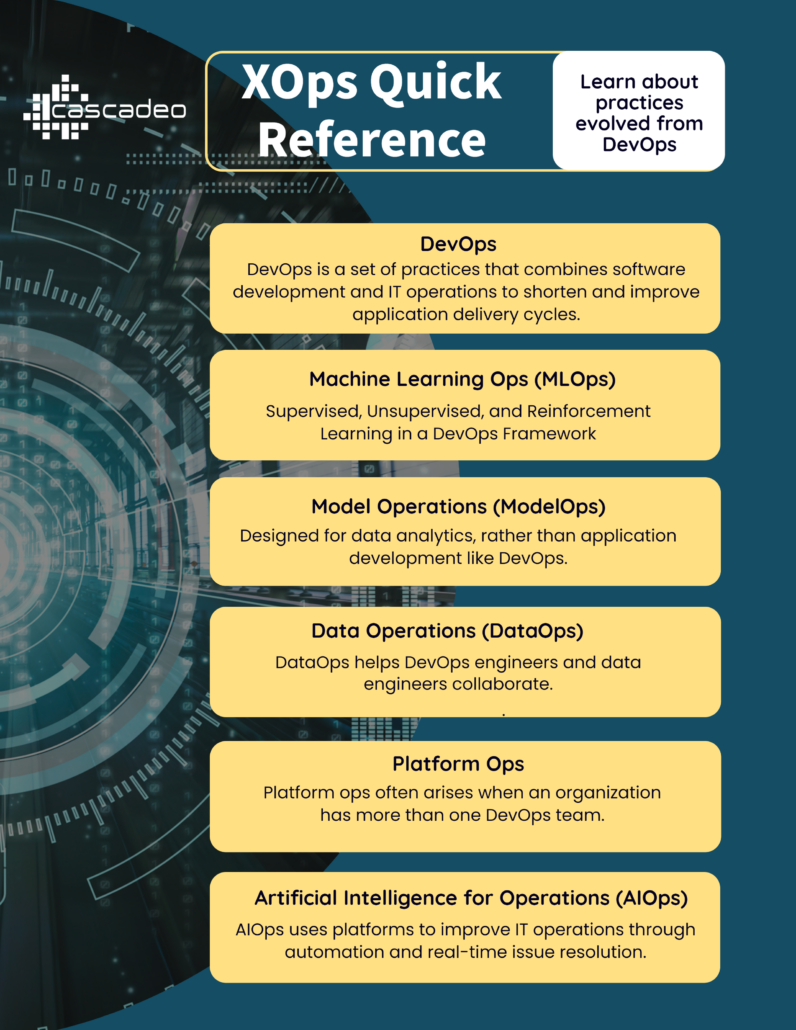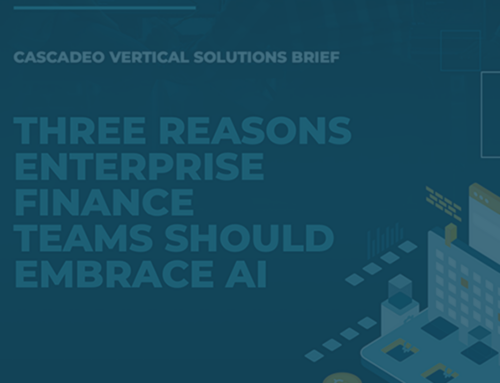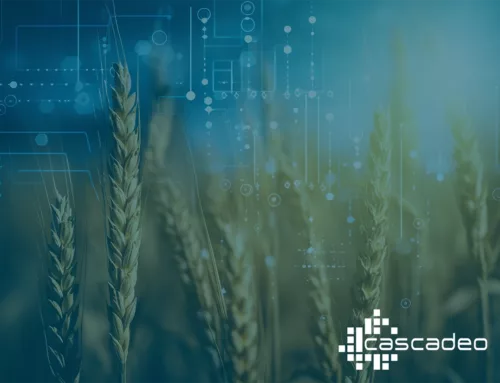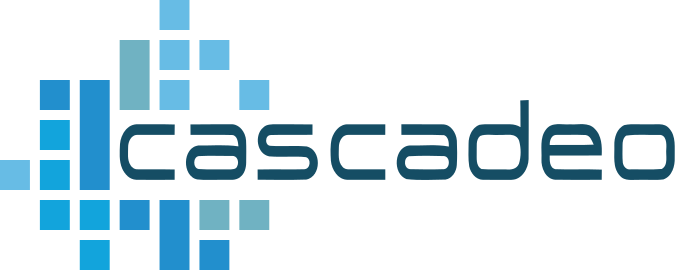Learn about practices evolved from DevOps in this Quick Guide
When Patrick Debois and Andrew Shafer coined the term “DevOps” in 2009[1], it may have been hard to anticipate the future of XOps, or all of the different Ops practices that would be born of DevOps.
At its heart, DevOps combines software develop and IT operations. While tools can be part of it, DevOps also represents a culture shift in IT departments, and organization-wide. The most basic goal is to shorten development lifecycles.
Now, as companies work to truly scale as well as action on data, the XOps family presents a new suite of concepts to consider in evolving technical landscapes.
Machine Learning Operations (MLOps)
There are three primary types of machine learning: supervised learning, which leverages historical data sets; unsupervised learning, which develops predictive models without historical data sets, and reinforcement learning, which incents desired behaviors and disincentives undesirable ones.[2]
When DevOps teams leverage one or all of these models, the result can be an MLOps practice.
Model Operations (ModelOps)
Though it is a DevOps variation, Model Ops is designed for data analytics, rather than application development. ModelOps is a superset of MLOps, with the primary difference being that while MLOps focuses on only on machine learning, ModelOps is meant to operationalize all AI models.
Adoption of machine learning, artificial intelligence (AI), and the overall availability of very large data sets has driven the need to be able to interpret and ultimately action on said data. Many organizations experience pain around operationalizing data. For example, the analyst firm IDC estimated that only 35% of organizations deploy their models all the way to production[3].
Goal tracking and business metrics are critical to successful ModelOps practices.
Data Operations (DataOps)
DataOps helps DevOps engineers and data engineers work together, and is a collaborative practice that seeks to improve the communication, integration, and automation of data flows. Both data managers and data consumers benefit.
Gartner predicts that in the coming years, the data and analytics experts will grow up to three times the rate of other experts in IT organizations.[4]
Platform Ops
Platform operations is often seen when an organization has more than on DevOps team, each of which might be dedicated to its own set of applications and may also be choosing their own tooling; in this case, platform ops helps DevOps teams scale.
Platform ops teams are typically engineers who are hands-on in terms of development capabilities, but who also care about process and the establishment of standards. In addition, platform ops teams will have strong cross-department relationships.[5]
Artificial Intelligence for Operations (AIOps)
AIOps uses applications and technology platforms to improve IT operations through automation and real-time issue resolution. An AIOps platform will combine machine learning (ML) with multiple data sources to correlated events, detect anomalies, and determine causes for defined outcomes.
Whereas DevOps is a combination of people, processes, and products, AIOps references multi-layered technology platforms. AIOps should help support scalable ingestion and analysis of the large volume of data both generated by and provided to IT departments.[6]
References:
[1] https://newrelic.com/blog/nerd-life/devops-name
[2] https://www.gartner.com/smarterwithgartner/understand-3-key-types-of-machine-learning
[3] https://www.techtarget.com/searchitoperations/definition/ModelOps
[4] Introducing DataOps Into Your Data Management Discipline, 16 February 2021
[5] https://dzone.com/articles/what-is-platform-ops-and-why-should-developers-nee
[6] https://www.gartner.com/en/information-technology/glossary/aiops-platform





